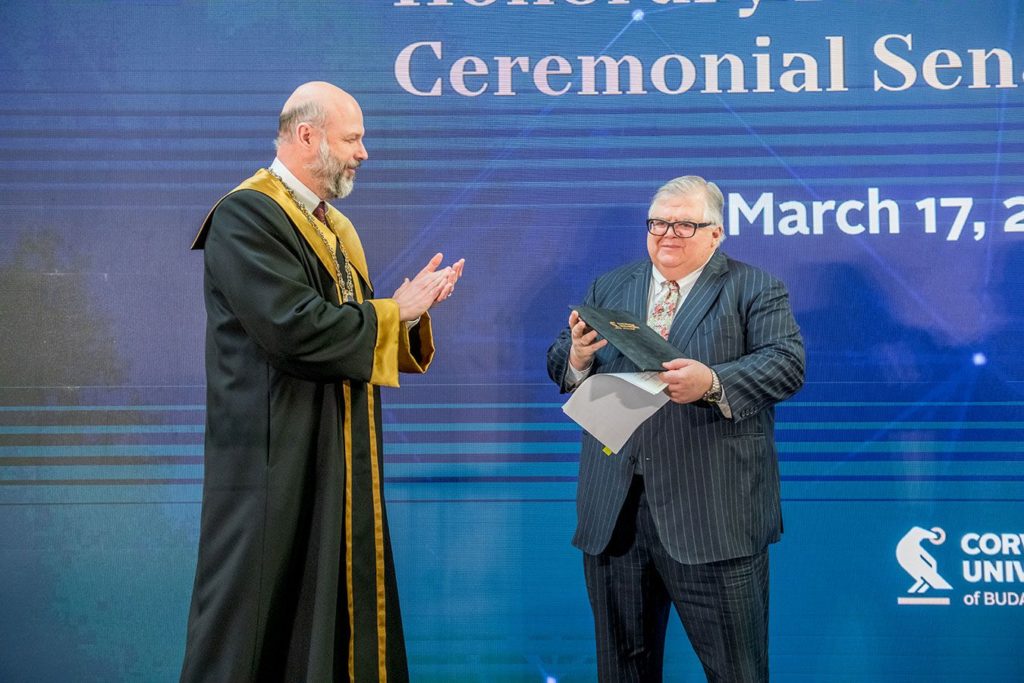Central banks are determined: inflation can only be broken with tight monetary policy

Corvinus University of Budapest hosted a conference on 17 March entitled The New Era of Central Banks in Emerging Markets, which discussed the benefits of digital central bank money along with the battle of central banks against inflation.
“The conference summarised the financial development of the economies of the past 20-25 years with world-class speakers, and had a scientific diplomatic value in addition to its academic summary. This is the first time in the 90-year history of the international financial institution that the head of the Bank for International Settlements has visited Hungary. Dr Agustín Carstens, who currently holds the post, was awarded an honorary doctorate by the university in connection with the conference,” said Előd Takáts, Rector of Corvinus.
Several speakers were professors from the London School of Economics and Political Science (LSE), Europe’s leading centre for economic policy thinking. Ricardo Reis, a leading expert in macroeconomics, and Andrés Velasco, former Minister of Finance of Chile, Professor at the LSE and Dean of the School of Social and Public Policy were also present. A professor from the University of Cambridge and senior leaders from the International Monetary Fund and the Bank for International Settlements were also present, so it was a great achievement in science diplomacy that Corvinus University hosted this event.

According to the starting point of the conference, emerging markets have undergone changes that point in the direction of being much better able to cope with economic policy and economic shocks. Compared to crises 20-25 years ago (tequila crisis, Russian crisis, East Asian crisis), emerging markets have performed better than developed markets in the current major global crises (Covid, Russian-Ukrainian war), raising interest rates earlier than developed countries.
Central banks are determined: as long as inflation is high, tight monetary conditions should be maintained
In an exchange of views at the conference on the emergence of global inflation and the fight against it, participants underlined the need for a determined strict monetary policy. This is because monetary tightening is reducing demand, easing upward pressure on prices in the economy and moderating price increases.
However, central bank interest rate increases have an impact on financial stability, so it is necessary to examine how much the economy and the financial system can take without serious damage, as well as what the central budget balance (higher interest expenditure) and the real economy (excessively falling demand should not turn into recession) can take. Participants at the conference – many central bankers and those who follow central bank thinking closely – were in absolute agreement that as long as inflation remains high, tight monetary conditions must be maintained as the only way to bring inflation down. Situations like those of the 1970s, with inflation slowly spiralling out of control, must be avoided.
